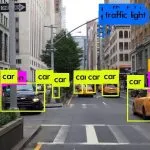Quantum physics has already had a profound impact on our lives. Almost every electronic device we use today can be traced back to quantum physics, thanks to the development of the laser and the transistor. A second quantum revolution may be just around the corner as we seek to harness even more of the quantum world’s power. Many industries, such as healthcare, energy, finance, security, and entertainment, could be affected by quantum computing and quantum communication in the near future. It has been estimated that by 2030, the quantum industry will be worth billions of dollars. In order to achieve this level of large-scale impact, however, there are significant practical challenges to overcome.
Why and how does quantum computing work?
The puzzling behavior of nature’s tiniest particles, such as atoms, photons, and electrons, has long been studied by quantum computer scientists. Our understanding of physics shifts to that of quantum mechanics at this scale.
While quantum physics is still a mystery to scientists, they do know that quantum particles have the potential to store and process enormous amounts of data. When these particles are brought under control in a quantum computer, they could unleash an explosion of computational power in a variety of fields, such as drug discovery or climate modeling.
Bob Sutor, IBM’s chief quantum exponent, describes quantum computing as a way to emulate nature in order to solve extremely difficult problems and make them tractable.
What is a quantum computer?
It is possible to isolate and manipulate quantum particles in a quantum processor, which can be found in quantum computers of various shapes and sizes.
Quantum computing approaches differ in the types of quantum particles they use and the methods they use to control them. Although the goal of each method is different, they all share the goal of discovering how to best exploit the value that can be gained from quantum physics.
So, what’s the big deal about quantum computers?
Supercomputers can’t solve every problem.
Supercomputers are used by scientists and engineers to solve difficult problems. These are massively parallel machines with tens of thousands of CPU and GPU cores each. However, even the most powerful computers can’t solve all problems.
If a supercomputer is unable to solve a problem, it is most likely due to the difficulty of the problem being posed to the massive classical machine. The failure of traditional computers is frequently attributed to their complexity.
Complicated problems are those with a large number of variables intertwined. Because of the many electrons interacting with each other, it is difficult to model the behavior of individual atoms in a molecule. In a global shipping network, determining the best routes for a few hundred tankers is also challenging.
Why is quantum computing important?
Quantum computing is expected to provide gains in time that are not on the order of hours or days, according to researchers. We’re talking about solving problems that have taken today’s most powerful supercomputers thousands of years to solve, such as hurricane modeling or cracking the cryptography keys protecting the most sensitive government secrets, in just a few minutes.
Businesses, as well, have a lot to gain. Boston Consulting Group (BCG) estimates that quantum computing advancements could create $850 billion in value over the next 15 to 30 years, with $5 to $10 billion of that value generated in the next five years if key vendors deliver on the technology as they have promised.
Uses of the quantum computer
Classical computers solve problems in the form of algorithms, and quantum computers will do the same thing with quantum algorithms. A number of quantum algorithms have already been identified as being particularly well-suited to quantum computers.
An optimization algorithm is a tool that helps find the best solution from among a large number of feasible ones. Quantum systems could use optimization algorithms in a wide variety of contexts, from supply chain administration to traffic management.
Because qubits allow researchers to handle the simulation and prediction of complex interactions between molecules in larger systems, quantum simulation algorithms are also expected to deliver unprecedented results, delivering more immediate advancements in domains like materials science and drug development.
Artificial intelligence (AI) and machine learning (ML) are poised to benefit greatly from the advent of quantum computers, which can handle and process much larger datasets. Quantum algorithms, researchers have shown, have the potential to break traditional cryptography keys, which are currently too mathematically difficult for classical computers to break.
Present State of the Quantum Computing Industry
One thing is for sure: the quantum computing industry is advancing quickly, and investors are providing a significant amount of funding to the ecosystem. According to BCG, quantum computing equity investments will rise to $800 million in 2021, a nearly threefold increase from 2020.
For quantum information science, the US has allocated $1.2 billion over the next five years and the EU has announced a €1 billion ($1.20 billion) flagship. The government investment is even more significant. While China’s official numbers are unknown, the government has made no secret of its desire to aggressively compete in the quantum race, the UK recently reached the £1 billion ($1.37 billion) budget milestone for quantum technologies.
This has resulted in a dramatic increase in the number of quantum startups, from a few in 2013 to nearly 200 by 2020. While only 1% of companies budgeted for quantum computing in 2018, that number is expected to rise to 20% by 2023, according to Gartner, a leading research firm.
Conclusion
The quantum technology sector’s explosive growth over the last five years has been fascinating to watch. The future, on the other hand, remains a mystery. Because of quantum theory, we know that randomness need not be a bad thing. It is possible for two qubits to be locked together in such a way that the individual qubits remain undecided, but the two qubits together are perfectly in sync—either both are zero or both are one. Quantum computing algorithms are propelled by the entanglement phenomenon, which is a combination of shared certainty and individual unpredictability. It may also be instructive in terms of establishing a quantum industry. Businesses have a better chance of surviving the quantum future if they plan prudently while also accepting future uncertainty.












